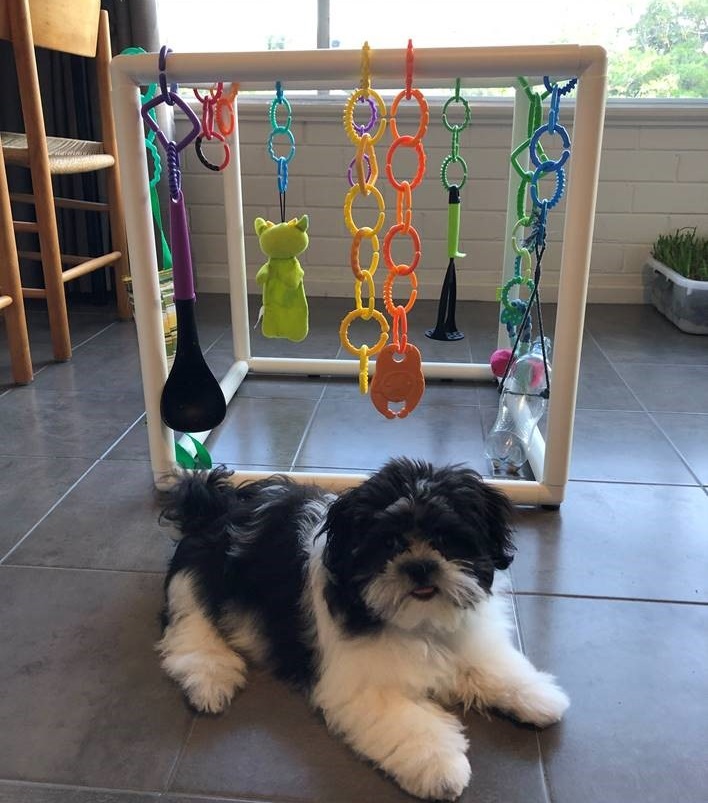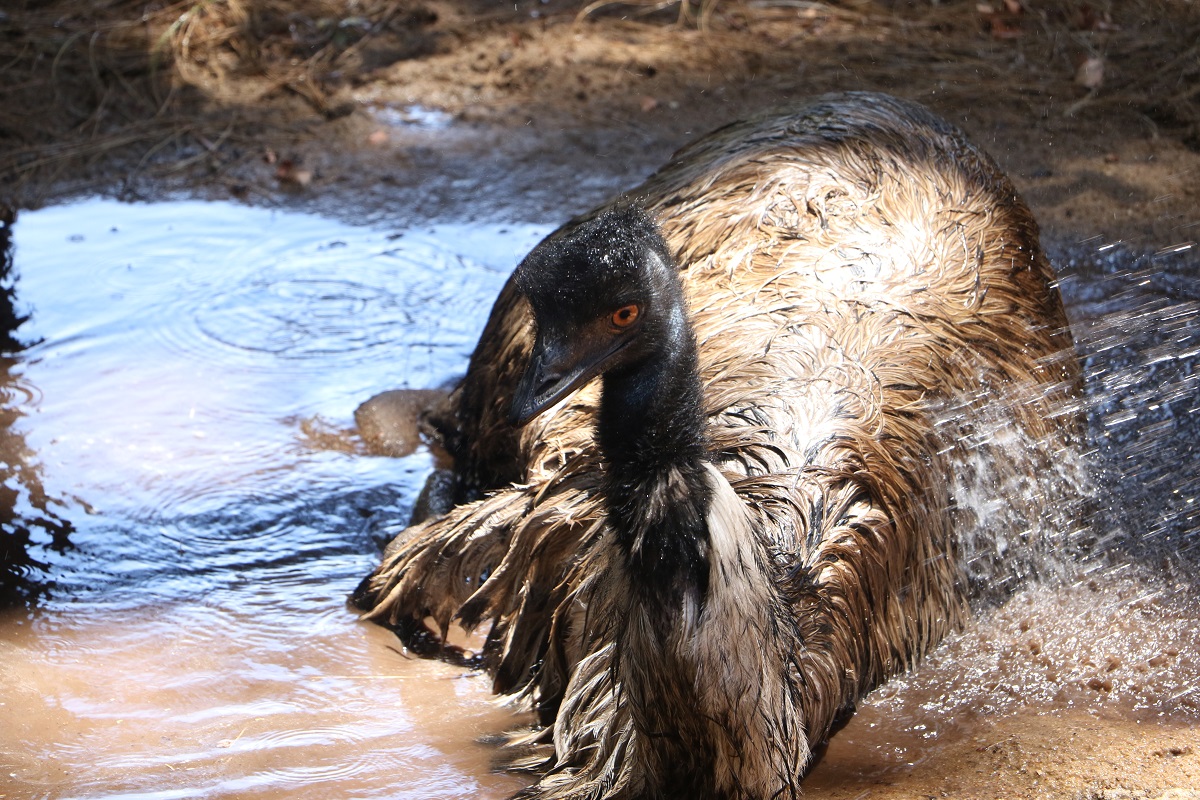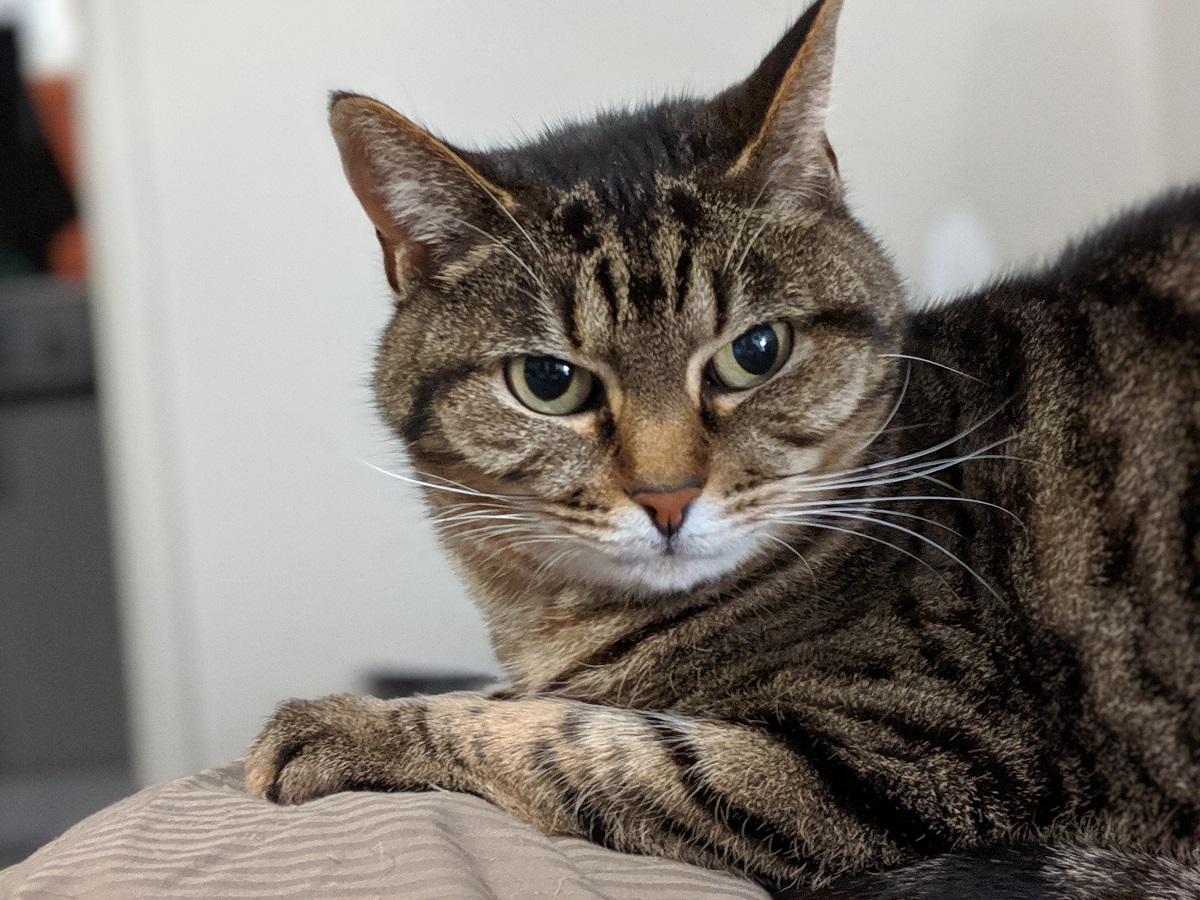Variety is the spice of life and in the zoo world we achieve this by changing things up, creating puzzles and challenging the animals so that no two days are ever the same. It keeps them mentally and physically healthy and what we call ‘enrichment’. But lots of the things we do to care for the zoo animals can be used to look after your furry, feathered and scaly mates at home.
Claire Gaskin- Perth Zoo Discovery and Learning Officer - Make A Play Cube for Enrichment

At home I have an 18-week-old Lhasa Apso puppy named Ripley. She’s a clever cookie and learns things quickly, so enrichment also keeps her body and brain active.
I have made her a Puppy Play Cube out of PVC plumbing pipe. I added connector links that hang off the top of the frame so I can change what I attach to it.
Ripley’s favourite cube attachments to play with includes a recycled plastic bottle that spills out treats when tipped; a soup ladle that I add peanut butter to (she’s still working out how to keep it still enough to lick); and her squeaky green monster chew toy.
There are a few safety-checks I suggest before you let your dog near a home-made Play Cube.
- Fill the base pipes with clean sand and add non-slip feet so it can’t move or topple over.
- Make sure the pipes, corners, connector links and all the things that hang off them are safe and won’t break or disintegrate once chewed.
- Observe your pet the first few times that they are using the cube.
Kerry Pickles- Perth Zoo Keeper- Our Feathered Friends Love Baths

Birds love baths! For one of our larger bird species, the Emu, we create a wading pool for them regularly. They love to splash around and preen their feathers in it.
Recreate this for any smaller birds at home by providing a shallow dish of water for them to play in. Make sure that the water level is no higher than your bird’s legs.
We also have a special sprinkler system in our aviaries so the Zoo birds can enjoy a mist like spray occasionally, just like a gentle rain. At home you could replicate this manually with a very light spray bottle.
Bathing is an essential part of feather maintenance keeping them in good condition. During the preening process, birds rearrange and spread oil onto their feathers from a special gland they have, this maintains waterproofing and traps air in an insulated layer to help them moderate their body temperature.
Other ways to benefit your pet birds include: Providing them with different exhibit furnishings (a variety of perching options), foraging devices, natural plantings and nuts, flowers or leaves (just make sure it’s appropriate for the species you have). You could also try training sessions to further engage the intelligence and curiosity of your feathered friends.
Alan Gill- Perth Zoo Advocacy and Interpretation- Indoor Cats Can Be Happy Cats

I have two cats that were adopted as kittens from the RSPCA, 12-year-old Abby and 11-year-old Bounty.
Abby and Bounty are indoor cats, it’s the safest place for them and indoor cats live much longer, happier and healthier lives. It is also better for the wildlife in my backyard and surrounding neighbourhood.
For indoor cats, playtime is important! I actively play with them (using laser pointers and toys on string) and I swap their toys to keep things interesting when I’m not home. Grooming is also important, not just for their health but to build strong bonds and companionship.
Everyone can be a responsible pet owner by remembering that pets and wildlife generally don’t mix! Keeping cats on your own property, or dogs on leads when walking through bushland, reduces the risk of injury to them and our native species.
Being a responsible pet owner is all about looking after our pets and being respectful of our wildlife. When we do this, everyone benefits!